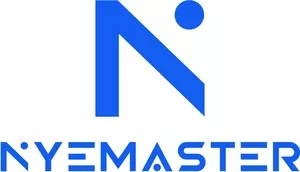- within Media, Telecoms, IT, Entertainment, Law Department Performance and Intellectual Property topic(s)
- with readers working within the Banking & Credit and Environment & Waste Management industries
In a compensable work comp case, the injured worker is generally seen by a physician chosen by the employer, who provides an evaluation of permanent impairment. If the worker believes this evaluation is too low, the worker is entitled to reimbursement for the reasonable fee of a subsequent evaluation ("IME") by a physician of the employee's choice. Iowa Code § 85.39(2). Pursuant to the 2017 amended language of §85.39, reasonableness of the fee "shall be based on the typical fee charged by a medical provider to perform an impairment rating in the local area where the examination is conducted." Iowa Code §85.39(2). The employer is only liable for such reimbursement if the injury is ultimately determined to be compensable. Thus, in order to be entitled to reimbursement, the injury must be compensable, the employee's IME must be after the evaluation of permanent disability arranged by the employer, and the reimbursement is limited to a reasonable fee.
In a case of first impression, Mid-American Constr. LLC v. Sandlin, 2 N.W. 3d 838 (Iowa 2024), the Iowa Supreme Court was tasked with interpreting the amended language of §85.39 to determine the extent of reimbursement. The Court held that an employee is entitled to reimbursement, not only for the portion of the report devoted to the impairment rating itself, but also for the reasonable cost of the examination associated with determining the impairment rating (the entire fee for the report and exam), reversing recent lower court rulings on this issue. The Court also held the burden is on the employee to prove reasonableness of the fee, which requires specific fact finding by the Commissioner.
In Sandlin, the only evidence offered as to the reasonableness of the IME fee was that of the physician himself, who stated his fee was reasonable. Based on this alone, the Commissioner found the fee was reasonable. However, the Court held that under the amended language of §85.39, the Commissioner failed to follow the additional step which requires the agency to determine reasonableness based on the typical fee in the local area where the exam was conducted. Thus, the case was remanded for further fact-finding on the issue, whereby the parties were permitted to present additional evidence. However, in a subsequent decision where the Commissioner found the fee to be reasonable based upon the physician's own statement that his fee was reasonableand customary in the geographic area, the Court upheld the Commissioner's finding, as supported by substantial evidence. P.M. Lattner Manufacturing Co.v. Rife, 2 N.W.3d 859 (Iowa 2024).
If an IME fee is believed to be unreasonable, it is uncertain what type of evidence will sufficiently overcome the physician's own statement. Future agency cases will likely reveal the development of the law on this issue of whether the "Price is Right" based on evidence of customary pricing in the geographic area.
The content of this article is intended to provide a general guide to the subject matter. Specialist advice should be sought about your specific circumstances.


